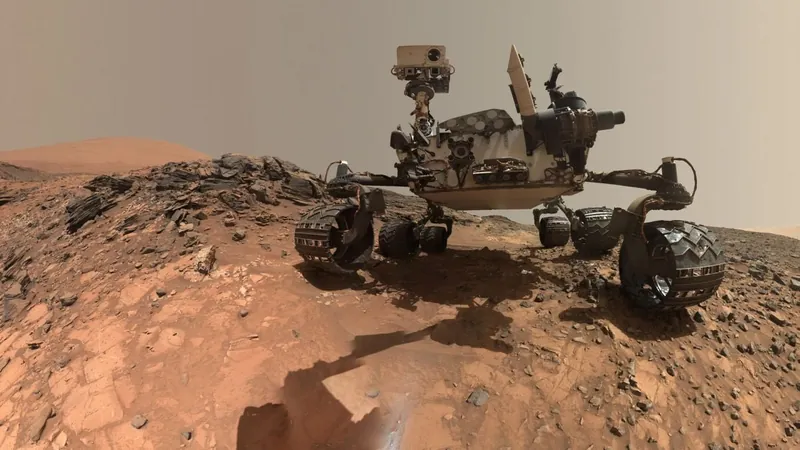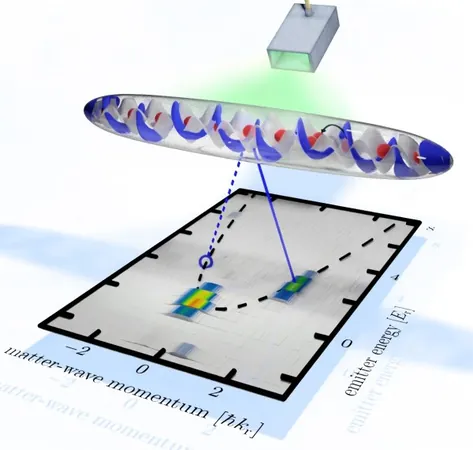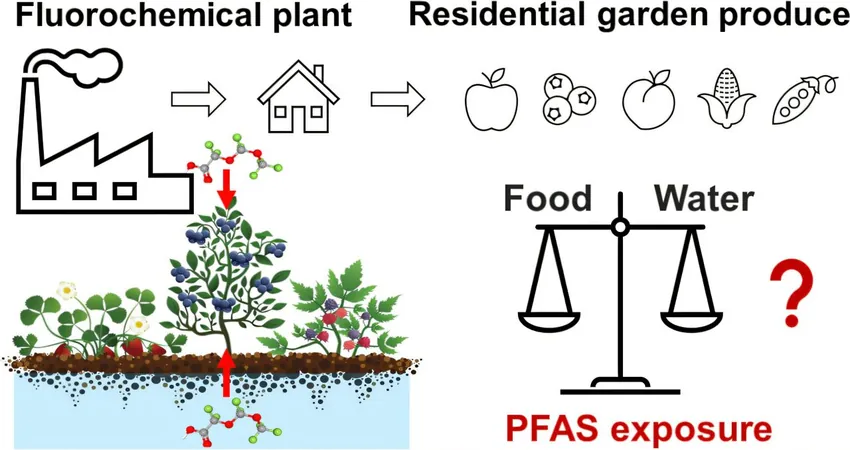
Could NASA's Viking 1 Have Obliterated Life on Mars? Astrobiologist Raises Alarming Theory!
2024-11-18
Author: Siti
Introduction
A startling theory proposed by astrobiologist Dirk Schulze-Makuch from the Technische Universität Berlin suggests that humans may have unknowingly extinguished Martian life almost 50 years ago during NASA's historic Viking 1 mission.
The Viking 1 Mission
Launched in 1976, the Viking 1 spacecraft made headlines as it conducted pioneering experiments to detect signs of life on the Martian surface. Scientists believed that the presence of liquid water was essential for any form of life to exist, resulting in experiments that mixed Martian soil with water and nutrients. Initial findings were promising, hinting at life; however, further analysis indicated these results were likely false positives.
Schulze-Makuch's Theory
Schulze-Makuch diverges from conventional scientific conclusions, postulating that Viking 1 may have indeed discovered Martian life but inadvertently eradicated it by inundating it with water. His theory raises the possibility that life on Mars may not have been as water-dependent as we have always assumed.
Alternative Survival Mechanisms
The scientist posits that Martian microbes could be fundamentally different from Earth organisms, thriving in arid environments by drawing moisture from salty deposits rather than liquid water. He cites parallels on Earth, such as resilient microbes in the hyperarid Atacama Desert in Chile that absorb atmospheric moisture through salts. Schulze-Makuch believes that Viking’s experiments, heavy with water, could have inadvertently "drowned" any existing Martian microbes.
Reimagining the Search for Life
This perspective urges a reimagining of how we search for life on Mars. Historically, NASA's exploration mantra has been to "follow the water," but Schulze-Makuch emphasizes the need for a shift in strategy. He advocates for a broader exploration approach that seeks hydrated and hygroscopic compounds instead of focusing solely on liquid water. Studying environments on Mars that could support life in non-water-based contexts could be crucial.
Comparisons to Earth's Extremes
In a revealing interview with Space.com, he drew concerning comparisons to Earth's driest regions, noting that studies have shown heavy rainfall can devastate native bacteria in the Atacama Desert, which cannot cope with sudden water surges. Similarly, he speculates that Viking's experiments might have resulted in a catastrophic event for Martian microbes.
Call for Renewed Efforts
With nearly five decades passing since the Viking missions, Schulze-Makuch underscores the need for renewed endeavors to uncover Martian life, leveraging advanced techniques and methodologies that reflect our enhanced comprehension of the Martian environment. He advocates for deploying various life-detection methods during future missions to gather credible evidence and achieve conclusive findings.
Conclusion
This theory, while still speculative, invites us to consider radical new possibilities about life beyond Earth and has sparked discussions on how to reframe our approach to exobiology. As humanity continues its quest to unlock the secrets of the Red Planet, Schulze-Makuch’s insights could lead us closer to answering one of the most profound questions: Does life exist on Mars?



 Brasil (PT)
Brasil (PT)
 Canada (EN)
Canada (EN)
 Chile (ES)
Chile (ES)
 España (ES)
España (ES)
 France (FR)
France (FR)
 Hong Kong (EN)
Hong Kong (EN)
 Italia (IT)
Italia (IT)
 日本 (JA)
日本 (JA)
 Magyarország (HU)
Magyarország (HU)
 Norge (NO)
Norge (NO)
 Polska (PL)
Polska (PL)
 Schweiz (DE)
Schweiz (DE)
 Singapore (EN)
Singapore (EN)
 Sverige (SV)
Sverige (SV)
 Suomi (FI)
Suomi (FI)
 Türkiye (TR)
Türkiye (TR)